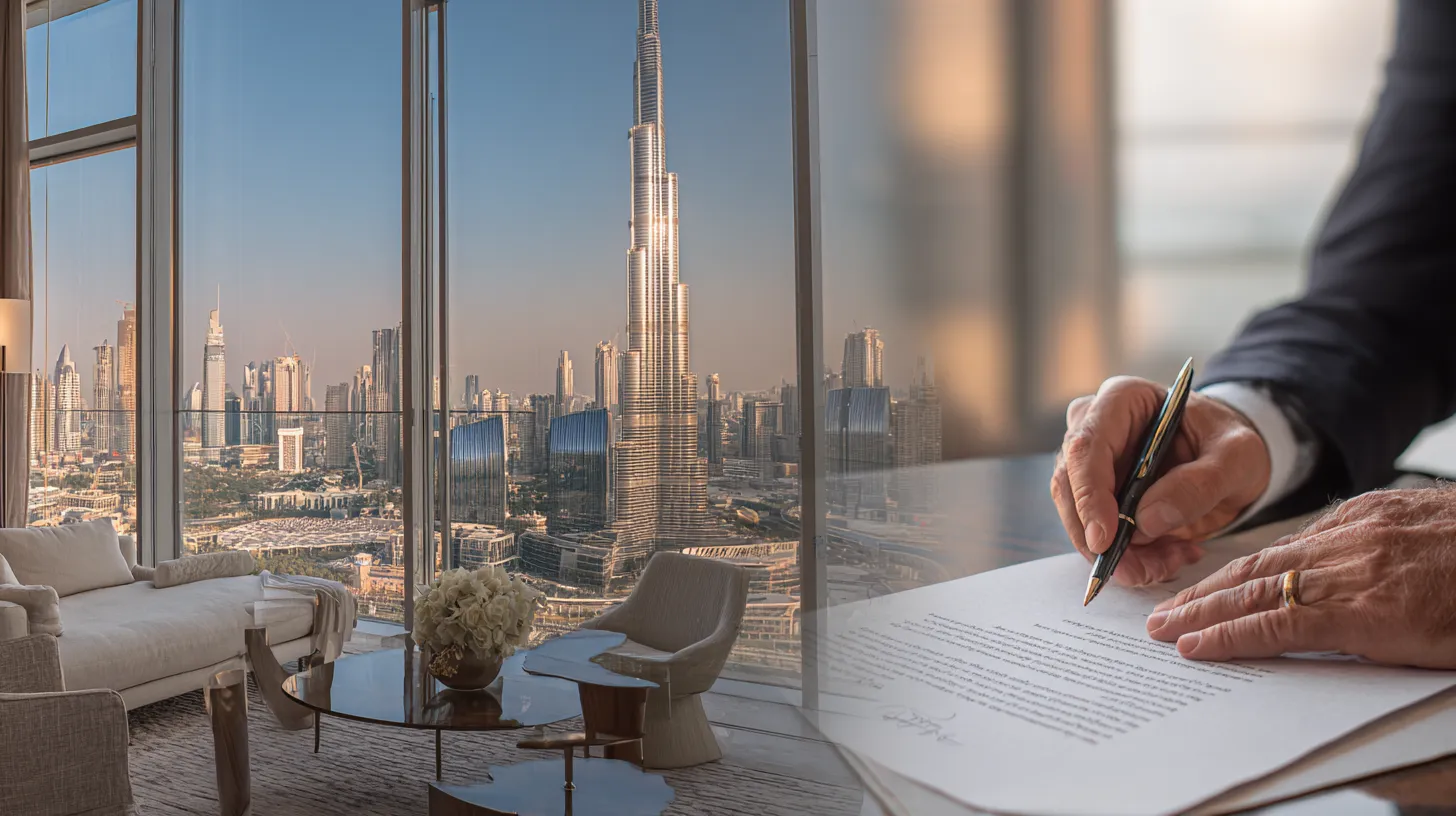When buying property in Dubai, you will encounter two main types of ownership: freehold and leasehold. These two forms of property ownership define the extent of control, duration, and financial commitment involved.
In what follows, we explore the key differences, benefits, and drawbacks to help you make an informed investment decision.
What is Freehold Ownership?
Freehold ownership grants the buyer complete and indefinite ownership of both the property and the land it sits on. Registered with the Dubai Land Department (DLD), the buyer receives a title deed that ensures full control over the property.
Owners can sell, lease, renovate, or pass the property to heirs without restrictions, subject to local regulations. Freehold properties are particularly appealing to long-term investors and those seeking to establish roots in Dubai.
What is Leasehold Ownership?
Leasehold ownership, in contrast, provides the right to occupy and use a property for a fixed period, typically up to 99 years in Dubai. The land remains owned by the freeholder (often a developer or government entity), and the leaseholder must adhere to specific terms, such as restrictions on modifications or subleasing.
At the end of the lease, the property reverts to the freeholder unless renewed. Given that leasehold properties are generally more affordable, they are attractive for short- to medium-term residents or budget-conscious investors.
Comparing Freehold vs. Leasehold
In this section, we would like to compare these two types of property ownership in Dubai and go over their major differences.
1. How Long You Own It
- Freehold: It's yours forever. There's no time limit on how long you can own the property.
- Leasehold: It's temporary. You own it for a specific period, usually between 10 and 99 years. After that, it goes back to the original landowner unless you renew the lease.
2. What You Can Do With It
- Freehold: You have complete control. You can renovate, sell, or rent it out as you wish as long as you follow any community rules.
- Leasehold: Your freedom is limited. If you want to make significant changes, rent it out, or even sell it, you often need permission from the freeholder (the original landowner).
3. Who Owns the Land
- Freehold: You own the property and the land it's built on.
- Leasehold: You only own the building or unit. The land belongs to the freeholder.
4. What It Costs
- Freehold: Usually costs more upfront because you're buying it permanently.
- Leasehold: Generally more affordable initially.
5. Who Pays for Repairs
- Freehold: You're responsible for all maintenance and repair costs.
- Leasehold: The freeholder usually takes care of major structural repairs, which can save you money on big fixes.
6. Visa Benefits
- Freehold: Owning a freehold property can make you eligible for renewable UAE residency visas, which can last from 5 to 10 years, depending on the property's value (you typically need a property worth at least AED 2 million for a 5-year visa).
- Leasehold: Owning a leasehold property usually doesn't qualify you for residency visas.
Pros and Cons of Freehold Ownership
Let’s take a look at the benefits and drawbacks of freehold ownership.
Pros
- Complete Control: Owners can renovate, lease, or sell without restrictions.
- Long-Term Investment: Freehold properties often appreciate faster.
- Residency Perks: Eligibility for long-term visas enhances appeal for expatriates.
- Inheritance: Properties can be passed to heirs.
Cons
- Higher Costs: Initial purchase and ongoing maintenance expenses are significant.
- Limited Availability: Freehold zones are restricted to areas like Downtown Dubai, Dubai Marina, and Emirates Hills.
- Regulatory Risks: Changes in government policies could affect taxes or fees.
Pros and Cons of Leasehold Ownership
To get a complete picture, we need to consider the positives and negatives of leasehold ownership as well.
Pros
- Affordability: Lower purchase prices make leasehold properties accessible.
- Reduced Maintenance: Freeholders often cover major repairs.
- Flexibility: Ideal for short- to medium-term residency or investment.
Cons
- Limited Control: Restrictions on modifications or subleasing.
- Finite Ownership: Property reverts to the freeholder at lease end.
- Lower Appreciation: Leasehold properties may not appreciate as quickly, with 5–8% annual growth in areas like Deira in 2024.
Popular Areas for Freehold and Leasehold Properties
Dubai offers a range of attractive locations for property investment, each with its own ownership structure. Here, we'll explore popular areas known for their freehold and leasehold options
Freehold Areas
Freehold properties dominate Dubai’s luxury real estate market. Notable areas include:
- Dubai Marina: Known for high-rise apartments and waterfront views.
- Downtown Dubai: Home to iconic landmarks like Burj Khalifa.
- Palm Jumeirah: Famous for luxury villas and hotels.
- City Walk and La Mer: Emerging freehold zones in previously non-freehold areas.
In January 2025, the Dubai government transitioned Al Jaddaf and parts of Sheikh Zayed Road to freehold status to increase investment opportunities. The DLD reported 15,000 freehold transactions in Q1 2025, a 10% increase from Q1 2024.
Leasehold Areas
Leasehold properties are less common but available in:
- Dubai Silicon Oasis: A tech hub with affordable apartments.
- Green Community: Family-friendly with lush green spaces.
- Deira and Al Karama: Older districts offering budget-friendly options.
Choosing Between Freehold and Leasehold
The decision hinges on your goals, budget, and timeline:
- Long-Term Investors: Freehold is ideal for those seeking capital appreciation and full control. It suits buyers planning to settle in Dubai or pass properties to heirs.
- Budget-Conscious Buyers: Leasehold offers a cost-effective entry into Dubai’s market, ideal for short- to medium-term stays or rental income.
- Lifestyle Needs: Freehold properties in luxury areas cater to those prioritizing prestige, while leasehold properties in community-focused areas suit families or transient residents.
Final Words
Dubai’s real estate market offers diverse opportunities through freehold and leasehold ownership.
Freehold properties provide unmatched control and long-term value, appealing to investors with substantial budgets. Leasehold properties, while limited in duration, offer affordability and flexibility for those with shorter horizons.
With 135,000 real estate transactions recorded in Dubai in 2024 (a 12% year-on-year increase), the market remains robust. Whether you choose freehold or leasehold, thorough research and professional guidance are essential to maximize returns in this dynamic market.























Discussion